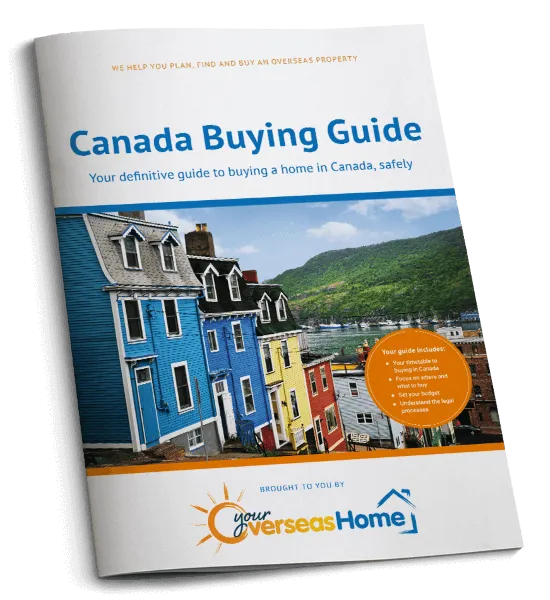Are non-Canadians banned from buying a property in Canada? The short answer is yes and no, but read more about who can buy and where. It may be that your plans are completely unaffected.
When last month the Spanish prime minister mentioned that Canada had banned overseas buyers, and that Spain might follow suit, he was only partially right.
It is true that Canada has a rule banning the purchase of residential property by non-Canadians, and that this has been extended to 1 January 2027.
In the words of Chrystia Freeland, Deputy Prime Minister and Minister of Finance: “We will ensure houses are used as homes for Canadian families to live in and do not become a speculative financial asset class.”
The Canadian government website goes on to say: “For years, foreign money has been coming into Canada to buy up residential real estate, increasing housing affordability concerns in cities across the country, and particularly in major urban centres.”
How to beat the buying ban
Reading between the lines, it seems clear that the real target is speculators and big investors. You can see that residential real estate in Canada’s growing cities could be an excellent investment, with cities such as Vancouver so often named as most liveable in the world.
But what of the rest of us, who want to enjoy the lifestyle that Canada offers, spend time with family over there, and wish to contribute to the country?
The good news is that there are options for us, even buying holiday homes. Firstly, we’ll look at who can still buy, and secondly where we can still buy.
Who is unaffected by the ban?
Canadian citizens and permanent residents
The prohibition does not, of course, apply to Canadian citizens, even those who live overseas. It also does not apply to permanent residents of Canada
Temporary residents
If you have a work permit for Canada or are authorised to work there under the Immigration and Refugee Protection Regulations, you may also purchase residential property. However, you must have worked full-time in Canada for at least three of the four years before the purchase. You must also have filed income tax returns for the relevant years and must not own more than one residential property.
Refugees and asylum seekers
Those who have been granted refugee status or are protected under the Immigration and Refugee Protection Act are exempt from the prohibition.
Diplomats and consular staff
Foreign nationals holding diplomatic or consular status in Canada are not subject to the ban.
Where can non-residents still buy in Canada?
Therefore, it does apply to non-residents from overseas, including British buyers. However, it’s important to note that it specifically targets the purchase of residential property. Non-Canadians can still invest in commercial real estate and, see below, recreational property.
You can still buy in smaller towns and rural regions. The rule bans non residents from buying in larger population centres – more than around 10,000 people – known as Census Metropolitan Areas (CMAs) and Census Agglomerations (CAs), as defined by Statistics Canada.
Buyers can read the rather technical rules on what is a CMA on the government website. You can also see a list of CMAs and CAs where you may not be able to buy here, but bear in mind that as towns rise and fall in population they can move on and off the list.
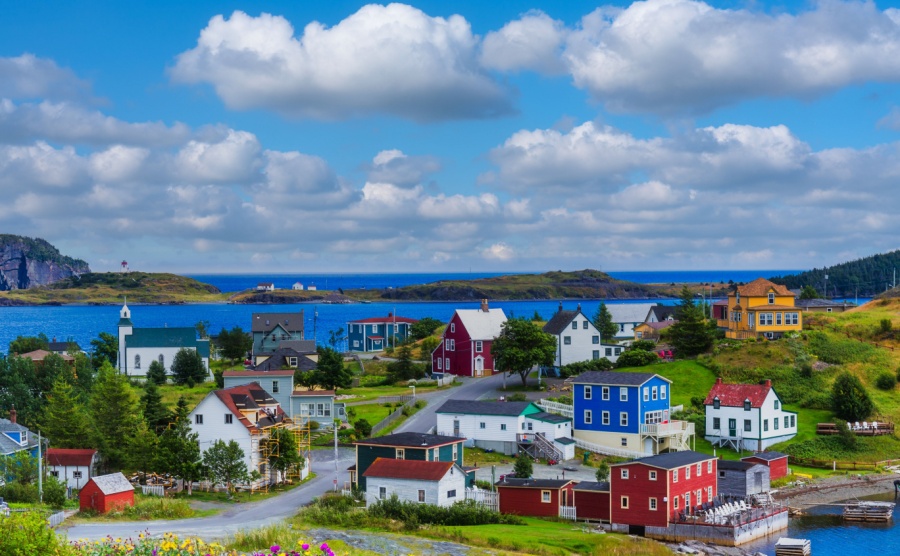
With a population of only 180, Trinity in Newfoundland should be fine to buy
The good news is that small town and rural life is precisely what many of us want from our lives and property in Canada. Such locations offer affordability, natural beauty and community living in Canada’s great outdoors. However, only around 15% of the population of Canada live outside a CMA or CA, so you will need to choose carefully.
The ‘recreational property’ exemption
Another way around the ban when buying a property in Canada is to buy a recreational property, as opposed to a residential property.
When drafting the Prohibition on the Purchase of Residential Property by Non-Canadians Act, the Canadian government made some exemptions for properties in non-urban, recreational zones. That includes many well-known ski resorts, cottage areas and rural holiday destinations.
There isn’t a single, clearly defined legal term for recreational zones across all of Canada — but it’s a common real estate category used by agents, developers and local governments.
So how do you know if the area you want to buy a property in Canada is recreational? Firstly, you would look at local zoning and land use classification. Municipal zoning bylaws dictate if the land is classified for residential use (primary residence, full-time living) or recreational use (seasonal/vacation). This is the most official test.
Also see how it is marketed. If the property is advertised as a ski chalet, vacation home, or seasonal cottage, it often fits the recreational category. However, this is not legally binding, so you need to check zoning and location too.
Even within some resort towns, (like Whistler) there are mixed-use areas where some properties are officially residential, and others are recreational. In these cases, local planning offices can confirm the designation. Then again, if a property is in a recreational area, if the zoning allows year-round residential occupancy, it could still be considered residential for the purposes of the ban.
Are ski resorts exempt?
The foreign buyer ban does not apply to recreational properties in certain designated areas, including many popular ski resorts. This is because the law was mainly designed to restrict foreign buyers from purchasing residential properties in major urban centres where affordability was a concern.
The most well-known generally are outside the scope of the ban. That includes Whistler and Big White, both in British Colombia, Banff and Canmore in Alberta, Mont Tremblant in Quebec and Blue Mountain in Ontario.
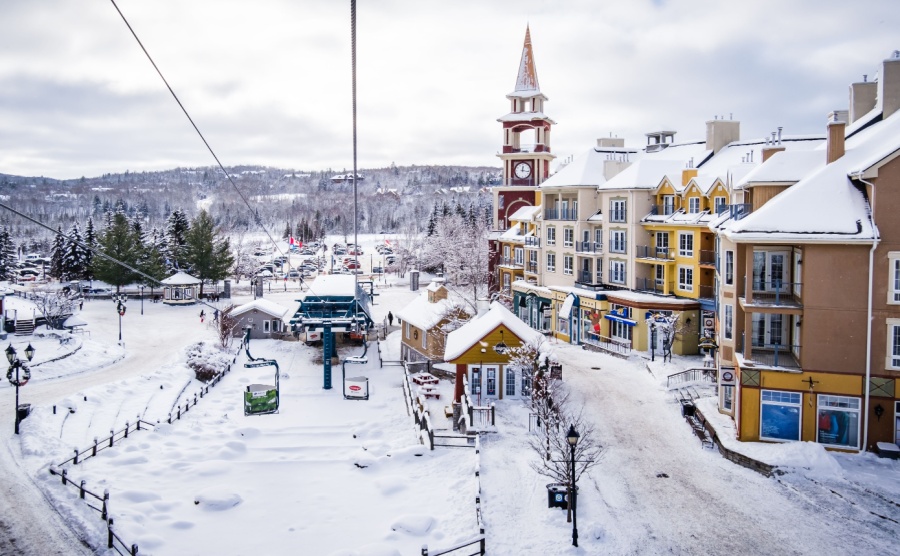
MOnt Temblant, Quebec (Pernelle Voyage / Shutterstock.com
So, if you’re buying a true holiday home at or near a ski resort (especially outside a major metro area), you’re probably exempt from the foreign buyer ban. But if you’re considering a residential property in a town that serves as a commuter hub or a place people live in year-round (like parts of Canmore), it might be restricted.
Small town and rural Canada
Here are a few examples of communities of fewer than 10,000 people where you should be able to buy:
Bayfield, Ontario.
Set on the shores of Lake Huron, this picturesque village is known for its well-preserved Victorian architecture and tranquil atmosphere. It has a thriving arts community, independent shops and a strong sense of heritage.
Despite its small size, it offers easy access to the larger town of Goderich for essential services, making it a desirable location for those looking for a peaceful retreat with a touch of charm.
Average property selling prices are around C$850,000.
Nipigon, Ontario
This remote town on the northern shores of Lake Superior is known as the gateway to the north. With breathtaking scenery, rugged landscapes and a strong outdoor culture, it is ideal for those who enjoy hiking, fishing and exploring nature.
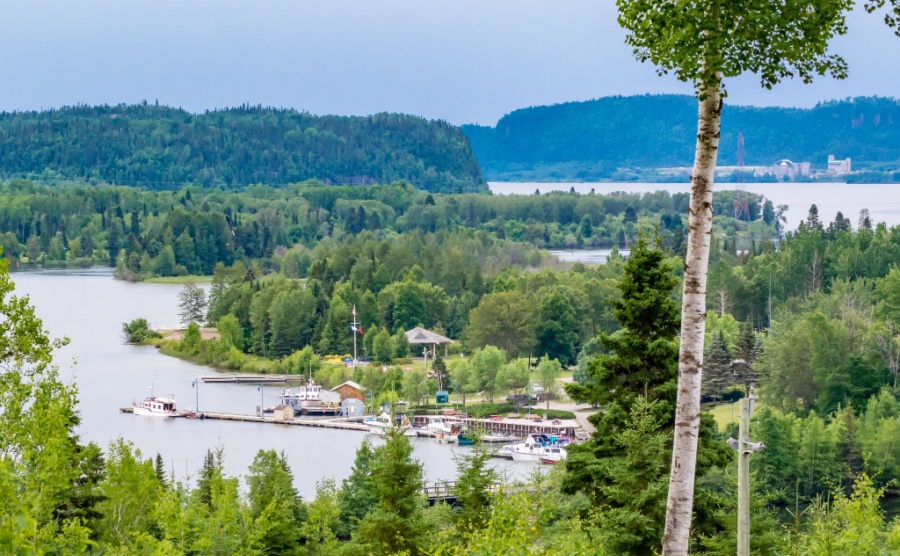
Buy a property in Nipigon and you could beat Canada’s home-buying ban
The property market remains affordable compared to urban areas, and the town is within reach of Thunder Bay, where more amenities are available.
Morrisburg, Ontario
Morrisburg offers a blend of history and modern convenience. Nestled along the St Lawrence River, it is home to the Upper Canada Village, a historic site that recreates life in the 19th century.
The town provides access to riverside activities, local dining and cultural attractions. It is also within reasonable driving distance of Ottawa, making it an appealing choice for those who want rural charm without complete isolation.
Average property selling prices are around C$550,000, and C$610,000 for a detached property.
Rothesay, New Brunswick
This quiet town near Saint John boasts scenic waterfront views, historic architecture and a welcoming community. It is popular with retirees and families looking for a slower pace of life while still benefiting from the services of a larger city nearby.
The property market here remains relatively affordable, particularly in comparison to major urban centres. Average property selling prices are around C$700,000.
Nelson, British Columbia
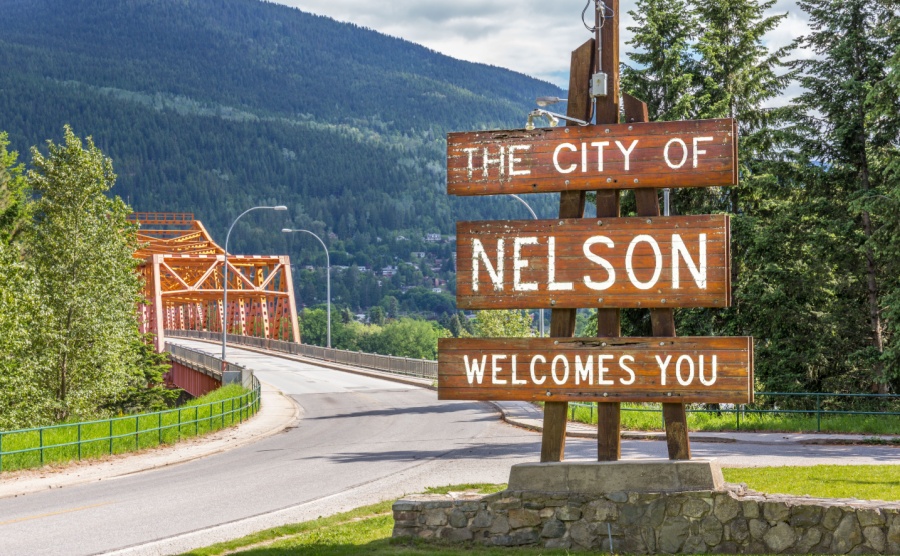
Nelson welcomes you!
Nelson stands out for its blend of natural beauty and cultural vibrancy. Located in the Selkirk Mountains, it has a rich arts scene, independent shops and a strong community spirit. It is surrounded by lakes and mountains, making it a haven for those who enjoy outdoor activities such as hiking and skiing. Despite its remote setting, Nelson offers a range of amenities and has a reputation as one of Canada’s most liveable small towns. The current median list price is C$750,000.
Each of these locations presents an opportunity for non-Canadians to own property in Canada without falling foul of the ban. With varied landscapes and lifestyles, they provide alternatives to the high prices and restrictions of urban markets. If you are considering buying in any of these areas, it is advisable to check local regulations and seek legal advice to ensure compliance with current property laws.


 Property Guides
Property Guides France
France Portugal
Portugal Spain
Spain Italy
Italy USA
USA Ireland
Ireland Greece
Greece Cyprus
Cyprus Australia
Australia New Zealand
New Zealand Canada
Canada Turkey
Turkey UK
UK




